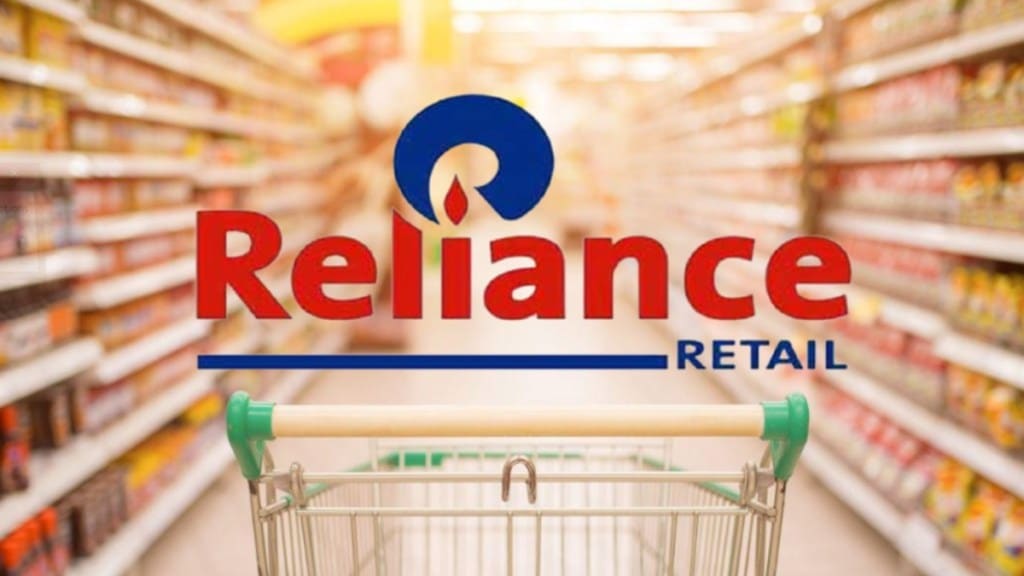Reliance Retail has turned up the pace in the quick commerce race, signalling a sharp acceleration in its delivery timeline at a time when competition in the space has intensified.
The company’s management, in its post-earnings recently, said that its omnichannel retail network gives it a structural edge as JioMart transitions to a half-hour delivery model, supported by an expanding grid of dark stores.
The move places Reliance Retail directly in competition with established players such as Blinkit, Swiggy Instamart and Zepto, all of whom are scaling rapidly after fresh capital infusions.
“We are uniquely positioned to drive profitable scale in quick commerce through our physical reach and supply chain backbone,” chief financial officer Dinesh Taluja told analysts. He said that the company’s hybrid structure of using its 3,000-plus physical stores as last-mile nodes and dark stores for rapid fulfilment, provides denser coverage than digital-only rivals.
The company has operationalised more than 600 dark stores nationwide, supplementing its existing network that spans 5,000 pin codes and over 1,000 cities. Daily order volumes rose 42% sequentially and more than 200% year-on-year in the September quarter, with most deliveries completed in under 30 minutes. JioMart now runs three delivery modes – instant, scheduled and subscription-based – covering grocery, fashion and consumer electronics.
Executives said that the service lists between 10,000 and 12,000 stock-keeping units, higher than most rivals, and maintains price parity across online and offline channels. The company also continues to waive platform and delivery fees, aiming to build repeat usage in smaller cities where margins are tighter but acquisition costs lower. Reliance said its quick commerce footprint now extends beyond metros into Tier II and III markets, where its store-led distribution network gives it immediate depth.
For the quarter ended September, Reliance Retail’s revenue rose 19% year-on-year to `90,018 crore, led by growth across grocery, fashion and electronics. Management described the quick commerce business as both a growth engine and a customer acquisition funnel within its wider retail ecosystem, linking JioMart, physical stores and hyperlocal logistics into one grid.
These developments come at a time when players like Blinkit, Swiggy Instamart and Zepto, have also chalked out plans for further expansion and marketing spending in the coming quarters.
Zepto recently raised $450 million, taking its reserves close to $900 million, while Blinkit’s parent Zomato holds over $2 billion in cash. Swiggy, after its partial exit from Rapido, has over $1 billion in fresh liquidity.
Reliance’s entry adds a new dimension to the contest. According to analysts, it mirrors the company’s playbook in telecom – entering late but leveraging massive scale and financial muscle to shift industry economics. “Reliance can afford to be patient and aggressive at once,” a Bengaluru-based consumer internet investor, told FE. “The others must show progress on unit economics every quarter; Reliance doesn’t have that constraint,” the investor added.
The company’s physical reach could also redraw the map of quick commerce beyond major cities. While Blinkit and Zepto dominate metro markets, penetration in smaller towns remains low due to logistics costs and limited order density. Reliance’s 3,000-store base and supply-chain backbone allow it to start with ready-made coverage, which analysts believe could give it a faster route to viable volumes in semi-urban areas.
Industry executives said this expansion could lift overall market growth, even if it raises short-term burn rates. “Reliance’s presence will accelerate adoption in Tier II and III cities,” Nitin Jain, managing director at consultancy Protiviti Member Firm for India, said. “It forces others to expand faster, which benefits customers through better access and pricing,” he added.
Still, execution remains a question mark. Analysts said that while the company’s new strategy relies on stronger infrastructure, success in quick commerce hinges on real-time demand forecasting, tight operational control and seamless user experience, areas where existing players have already built sophisticated systems.
Reliance’s app has drawn criticism for glitches and inconsistent service, and management will need to demonstrate improvement if it hopes to retain customers accustomed to the smooth interfaces of Blinkit or Zepto. “Speed and reliability matter more than discounts here,” a Mumbai-based analyst said.

